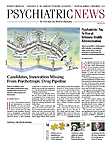The first round of data reported by the pharmaceutical and medical-device industries regarding payments that physicians and teaching hospitals may have received from them is now open to the public.
The information, collected and reported by industry in accordance with the Physician Payment Sunshine Act, a part of the Affordable Care Act, is available on a database known as Open Payments, managed by the Centers for Medicare and Medicaid Services (CMS). According to CMS, its purpose is to increase transparency and accountability in health care.
At the time of its launch on September 30, the database included information collected from August to December 2013 on more than 4 million payments valued at nearly $3.5 billion to 546,000 physicians and almost 1,360 teaching hospitals.
Physicians had an opportunity to review their data and dispute incorrect nformation for a 45-day period ending September 11; records whose problems were not resolved by the launch date were not published. Physicians still have until December 31 to dispute 2013 data, but disputes will not be flagged in the public database until the next publication cycle in June 2015.
Among the categories of payments that appear in the database are consulting fees; compensation for services other than consulting, including serving as faculty or as a speaker at an event other than a continuing education program; honoraria; gifts; entertainment; food and beverage; travel and lodging; education; research charitable contributions; royalty or license; current or prospective ownership or investment interest; compensation for serving as faculty or a speaker for an unaccredited and noncertified continuing education program; compensation for serving as faculty or a speaker for an accredited or certified continuing education program; grants; and space rental or facility fees (teaching hospitals only).
In the days after the launch, CMS said that it expected to add “enhancements” to the database sometime this month that will allow the public to more easily review information and search on criteria such as specialty, location, or types of payments received. Beginning in June 2015, reports will be published annually and will include 12 months of payment data.
At press time, 40 percent of the records in the database did not carry personally identifiable information—that is, the name of the physician or institution and other vital information—because the records did not meet CMS’s integrity standards for consistency of information when matched across other databases. Other records were not published because disputes over the reported data had not been resolved, and some manufacturers and group purchasing organizations were eligible to request a delay in publication of their data.
CMS announced that it will refresh the 2013 data at least once prior to the publication of 2014 data. This refreshed 2013 data will include records whose disputes have been resolved, as well as records that were not matched to a single physician or teaching hospital and were corrected and resubmitted after the data publication deadline. Physicians and teaching hospitals will be given time to review the corrections.
APA members who have not yet registered on the Open Payments system and reviewed their data are encouraged to do so now. (See end of article for registration information.)
CMS acknowledged that financial ties between industry and individual physicians or institutions that may appear on the database do not necessarily signal wrongdoing; many payments to physicians or institutions may reflect legitimate contributions to research and other appropriate activities. “Given the importance of discouraging inappropriate relationships without harming beneficial ones, CMS is working closely with stakeholders to better understand the current scope of the interactions among physicians, teaching hospitals, and industry manufacturers,” the agency said in a statement on its website. “CMS encourages patients to discuss these relationships with their health care providers.”
Here are some examples of appropriate interactions:
Advancing medical knowledge: Physicians in academic medical centers and other organizations receive funding from industry as investigators in clinical research and as consultants who help design and evaluate clinical trials or develop new medical technologies.
Advancing physician knowledge: Industry also supports physician education, and in some instances that will be reported as payments to individual physicians, even if the physicians are not aware of it. For example, a physician may receive an honorarium from his or her medical society for being on the faculty of an educational program put on by the society. If the society received a grant from industry to help support the program, that honorarium may be reported as indirect payment from industry through the Open Payments system, even though the physician received the honorarium directly from the medical society and wasn’t aware of the industry support.
Additionally, CME courses funded by industry and visits from pharmaceutical representatives to physician offices or health care organizations to talk about new research and treatment options can also supplement physicians’ knowledge about new advances in medicine. Industry sometimes also provides physicians with reprints of peer-reviewed medical journal articles and medical textbooks, which likewise help physicians stay abreast of the latest medical treatments.
CMS advises physicians to keep track of financial interactions with the health care industry and work with drug and device manufacturers to make sure submitted information is correct.
A free mobile app to help physicians track payments that might be reportable can be downloaded at the Google Play app store or iOS Apple app store. For more information, go to Open Payments Mobile for Physicians
here. According to CMS, the app serves as an information depository only; it does not interact with CMS systems or CMS contractors and cannot be used directly for data reporting to CMS or its contractors.
From its inception, the database has been plagued with problems. In August APA joined the AMA and more than 100 other medical specialty organizations in signing a letter to CMS registering “serious concerns with implementation of the Physician Payment Sunshine Act and … request[ing] an expanded timeframe to allow recipients to register, review, and dispute [physician] data.” ■
Registration information for the Open Payments system can be accessed
here.
